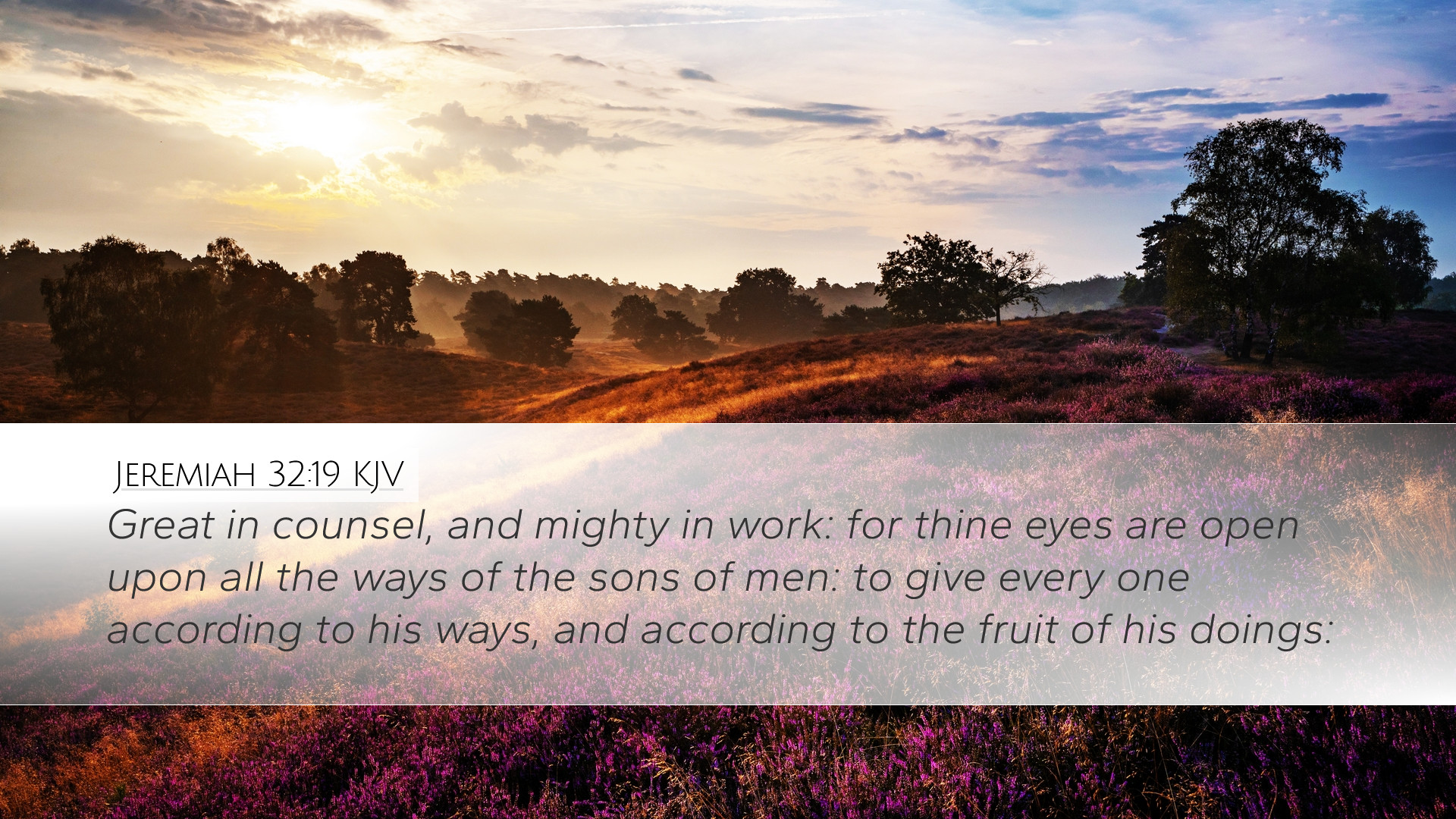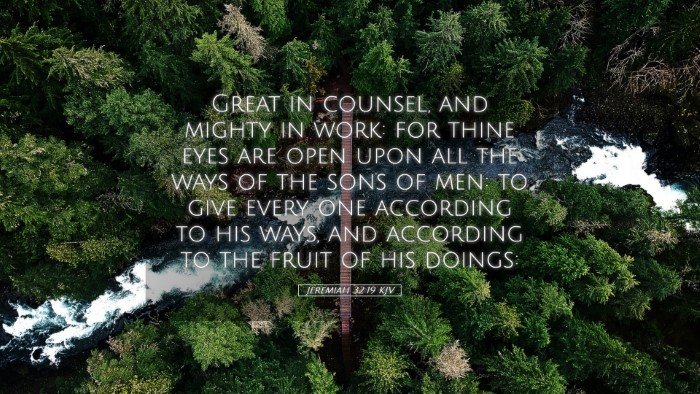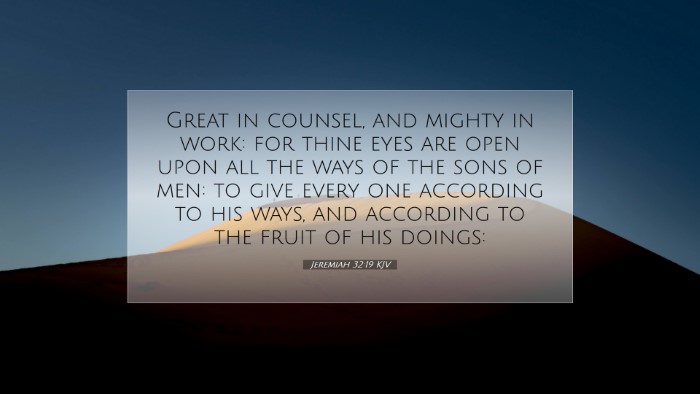Commentary on Jeremiah 32:19
Verse Text: "Great in counsel, and mighty in work: for thine eyes are open upon all the ways of the sons of men: to give every one according to his ways, and according to the fruit of his doings." (Jeremiah 32:19)
Overview
This verse is part of the broader context in which the prophet Jeremiah is engaging in prayer and reflection concerning God's sovereignty and the nature of His judgment. It emphasizes God's omniscience, omnipotence, and the righteousness of His ways. Commentators like Matthew Henry, Albert Barnes, and Adam Clarke provide profound insights into understanding this powerful verse within its biblical context.
Commentary Insights
1. The Greatness of God's Counsel
Henry emphasizes the idea that God's counsel is vast and profound. He points out that God's wisdom surpasses all human understanding and that His plans are unfathomable. In the face of Israel's rebellion, God still offers a counsel of hope, promising restoration and future blessings.
- Divine Sovereignty: God's plans will not be thwarted by human actions.
- Wisdom in Judgment: God judges with perfect insight; His decisions are founded in counsel that is beyond earthly comprehension.
2. The Might of God's Work
Albert Barnes notes the might of God's actions as displayed throughout history. The phrase "mighty in work" reflects God's ability to accomplish His purposes and exert His power over creation. This strength is not merely physical but encompasses moral and spiritual dimensions as well.
- Power Over Nature: God's mighty works are evident in creation, miracles, and the preservation of His people.
- Judgment and Mercy: His might also extends to judgment upon nations and individuals, highlighting the dual aspects of His character.
3. Omniscience: God's Eyes are Open
Jeremiah states that God's eyes observe all the ways of men. Clarke explains this omniscient attribute, reinforcing that nothing escapes God's notice. He is aware of every action, thought, and intention of human hearts. This knowledge is crucial as it underlines God's fairness in judgment.
- Awareness of Humanity: God sees both the visible actions and the hidden intentions behind them.
- Righteous Judgment: His awareness ensures that each person is judged fairly according to their deeds.
4. Accountability: According to Their Ways
The latter part of the verse—“to give every one according to his ways”—is a profound statement about divine justice. Henry reiterates that every individual is accountable for their actions. God’s assessments are not arbitrary; they are based on personal conduct and the fruit of one's doings.
- Moral Responsibility: Individuals are called to reflect on their lives, and their current state reflects their choices.
- Encouragement for Righteous Living: Understanding this accountability urges believers to strive for holiness and righteousness.
5. Theological Implications
This verse encapsulates key theological themes—God's omnipotence, omniscience, and justice. It serves as a reminder to believers that divine oversight is constant, and God's guidance facilitates righteous living. The insights provided by Clarke, Barnes, and Henry remind us that our actions carry weight and consequences.
Conclusion
Jeremiah 32:19 articulates critical insights into God's nature that are essential for pastors, students, and theologians. The verse serves as a reflection on the depth of God's counsel, the might of His works, His ever-watchful eyes, and the accountability we have to our actions. This complexity encapsulated within a single verse compels readers to consider their lives in light of God's holiness and desire for relationship.


